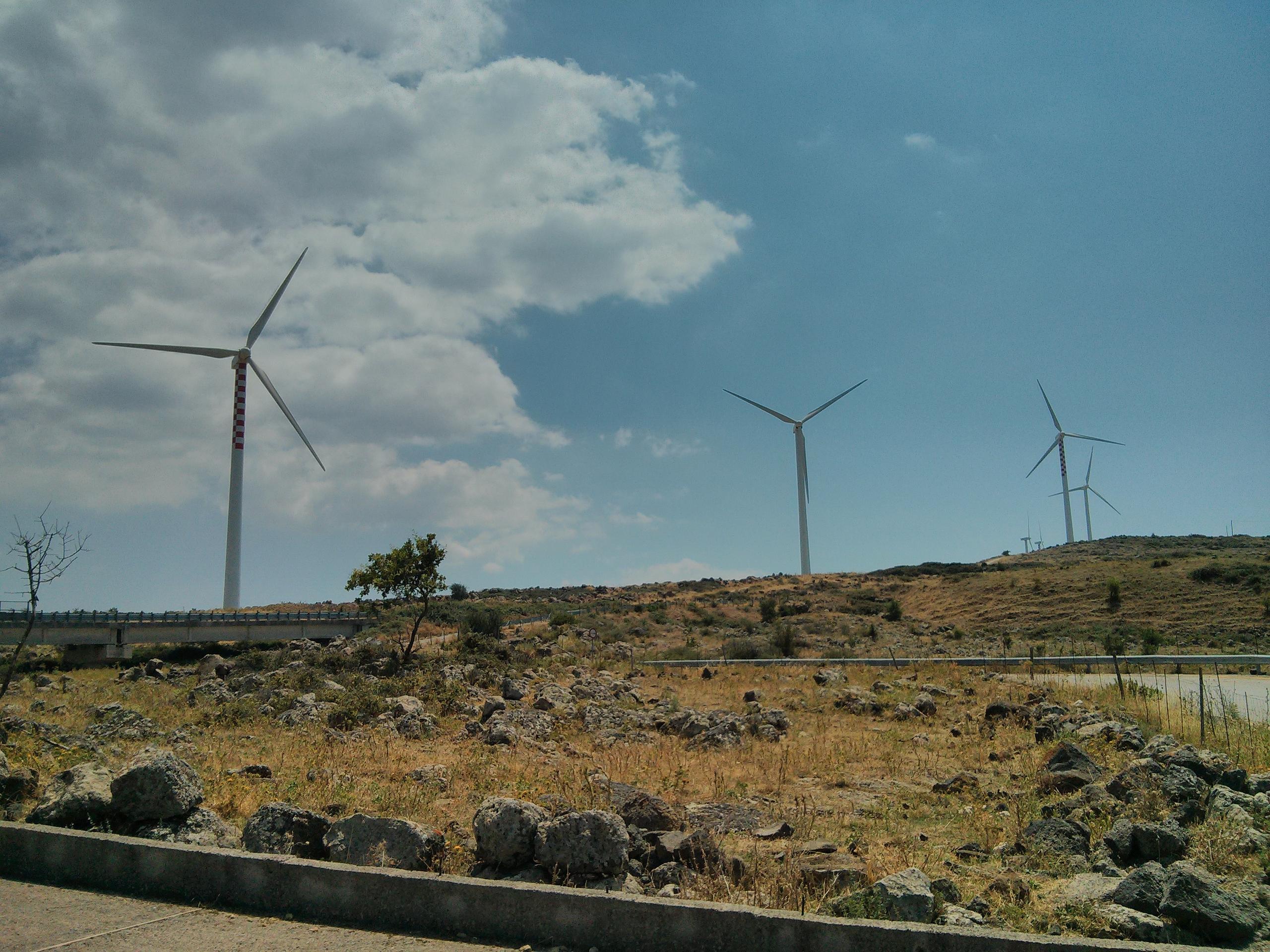Wind park in the Atacama Desert, Chile
Copyright© GIZ/Thomas Imo/photothek.net
Solar, wind, hydro power, biomass and geothermal energy Development needs sustainable energy
German activities for sustainable, clean and safe energy supply
The Federal Ministry for Economic Cooperation and Development (BMZ) is intensively engaged in achieving a global energy transition – both in its direct cooperation with partner countries and in its cooperation with international organisations, the private sector, civil society and academia.
These joint activities are aimed at ensuring that growing energy needs, especially in developing countries and emerging economies, are met and at realising the full transition of the energy sector to renewable energies.
A needs-based and inclusive energy supply that is based on renewable sources contributes significantly to achieving the internationally agreed climate goals and also facilitates a sustainable socio-economic development.
Cooperation with partner countries
The BMZ supports its partner countries in their efforts to plan and develop such energy systems, improve the general framework for the use of renewable energy and increase energy efficiency. The aim is to close all the gaps in access to energy and achieve universal energy supply by 2030 together with partner countries and the international donor community. By 2050, energy-related sectors are to be operating in a way that emits as little climate-harming carbon dioxide as possible (decarbonisation).
Germany’s commitment focuses on three levels of energy production:
- Basic power supply by means of rooftop solar kits or solar lamps for households and micro enterprises in rural areas that are not connected to the national grid
- Energy supply for rural communities, social facilities and small and medium-sized enterprises in agriculture and manufacturing by developing decentralised mini and micro power grids
- Supply of major consumers and consumer centres (cities, industry, mining) by feeding electricity that is generated from renewable sources into the power grid and improving transmission networks
The BMZ is promoting the efficient use of energy and increased use of renewable sources such as wind, solar, water and geothermal energy.
In 2022 alone, some 3.8 billion euros were committed under Financial Cooperation for investments in the production, transmission and distribution of climate-friendly energy and for measures to increase energy efficiency.
In addition to this financial support, a significant contribution to the success of Germany’s development cooperation activities in the energy sector is made by Technical Cooperation. Among other things, experts are advising Germany’s partner countries on comprehensive measures to broadly improve the enabling environment and build local capacities.
In line with feminist development policy, gender equality and social participation of women and girls are focal issues that are also being addressed by a growing number of energy projects.
International engagement
Germany is a prominent advocate of sustainable and climate-neutral energy supply at the international level. The European Commission (Directorate-General for Energy (External link)), the African Union, the World Bank Group (in particular the Energy Sector Management Assistance Program (External link), ESMAP) and regional development banks are among the BMZ’s closest partners.
Other important drivers of the global energy transition are the International Renewable Energy Agency (External link) (IRENA), the International Solar Alliance (External link) (ISA) and the global policy network REN21 (External link).
Massive private- and public-sector investment is needed to bring about the intended energy transition. Making this joint effort a success will require a coordinated and comprehensive approach of donors and partner countries. The ambitious goals of the partner countries must go hand in hand with reliable and long-term support from donors. An example of such a successful donor coalition in support of a swift, socially equitable energy transition is the Just Energy Transition Partnership (JETP) with South Africa.
One focus of German development policy in regard to energy is the cooperation with our partners on the African continent, a continent which has a rapidly growing demand for energy and great potential when it comes to renewable energies. Together with other EU member states Germany is working to promote the energy transition in African partner countries, for instance in the context of the Africa-EU Green Energy Initiative (AEGEI). (External link)
2030 Agenda – energy supply as the basis of sustainable development
Sustainable and needs-based energy supply is a fundamental precondition of economic and social development. That is why one of the Sustainable Development Goals (SDGs) of the 2030 Agenda is dedicated to energy. According to SDG 7 all people are to have access to affordable, reliable, sustainable and modern energy by 2030.
This kind of energy supply is the prerequisite for achieving other goals of the 2030 Agenda. It is the basis for reducing poverty and hunger, for improved education and health systems and it facilitates the sustainable development of cities, communities, industry and crafts and trade.
An energy transition is also a precondition for protecting the environment and the climate. That is why the Paris climate agreement also makes reference to the global development goals. The increased use of renewable energy and the efficient use of energy play a key role in the international ambition of limiting global warming to 1.5 degrees Celsius above pre-industrial levels.
German activities
As at: 25/07/2023











